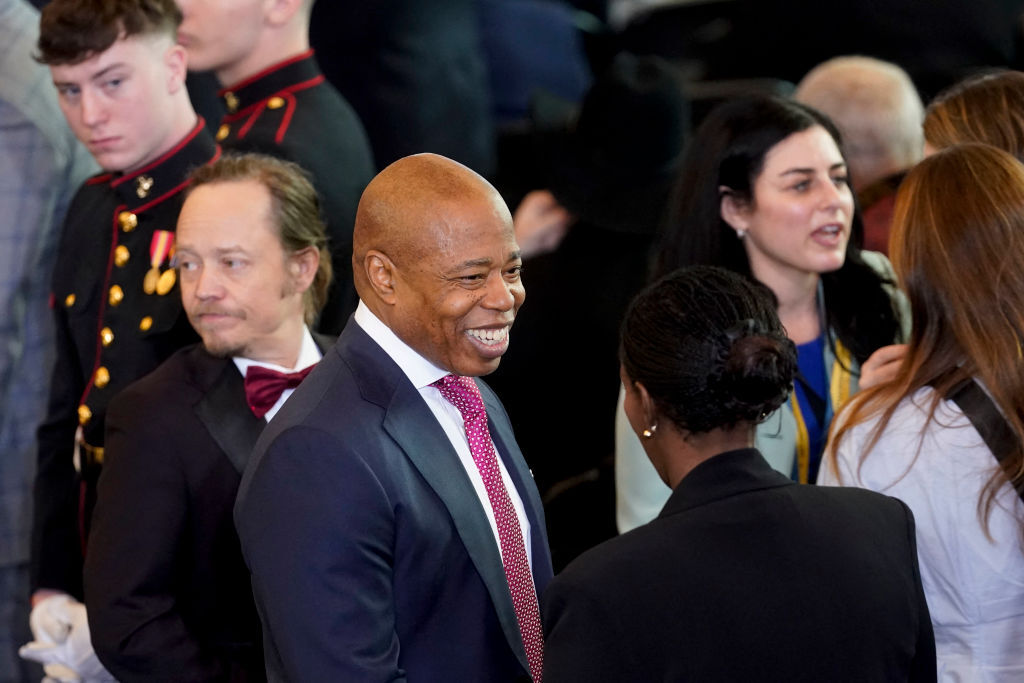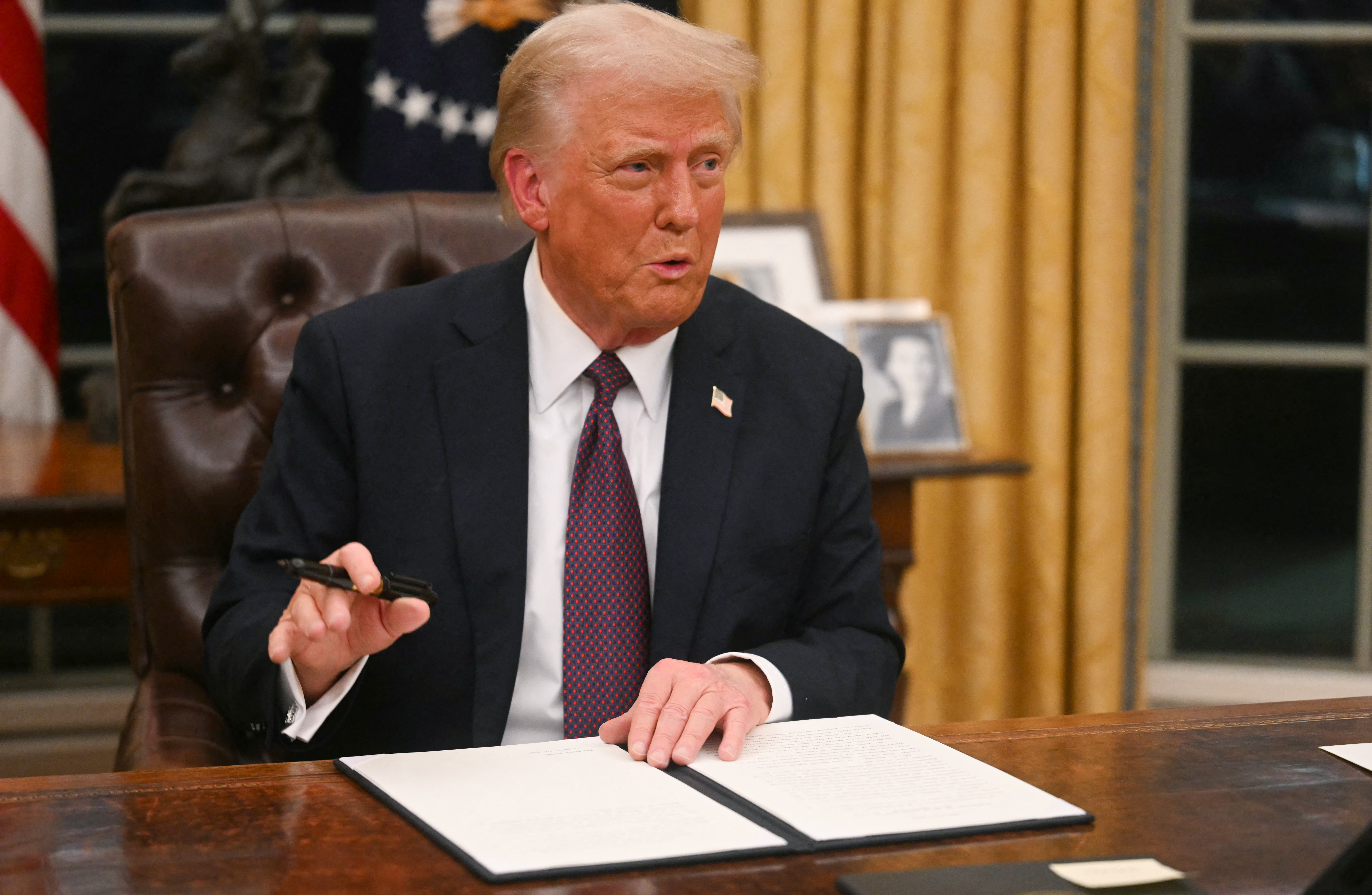What to Know
- The president of Columbia University moved all classes remote for Monday, citing ongoing pro-Palestinian protests at the Ivy League school's Morningside Heights campus and increasing reports of student fear in calling for a "reset"
- The students had been opposing Israeli military action in Gaza and demanding the school divest from companies they claim "profit from Israeli apartheid;" another erupted at NYU's Gould Plaza
- The protests have been sweeping colleges across the nation; dozens were arrested at NYU Monday night, following scores of arrests at Yale earlier in the day
A plywood wall was erected around NYU's Gould Plaza early Tuesday, hours after 120 pro-Palestinian demonstrators, in solidarity with their Columbia colleagues, were arrested for defying a university order to leave.
All but four of the 120 arrested at NYU were released on trespassing summonses. The others received desk appearance tickets for charges including resisting arrest and obstruction of governmental administration.
The arrests come amid escalating tensions over pro-Palestinian protests at college campuses in the city and the U.S.
Get Tri-state area news delivered to your inbox. Sign up for NBC New York's News Headlines newsletter.
Last week, students set up an encampment on Columbia's South Lawn in Morningside Heights, a demonstration that coincided with the college president's trip to Capitol Hill to testify on campus antisemitism in the wake of the Oct. 7 Hamas attack on Israel. Demonstrators oppose Israel military action in Gaza and demand Columbia, as well as NYU and an increasing number of colleges across America, divest from companies they claim "profit from Israeli apartheid."
More than 130 demonstrators were arrested when the university called in police to help dispel what the president argued had become an unruly and disruptive crowd. Similar encampments have since sprouted up at other universities in Manhattan and nationwide -- Yale and Harvard universities both saw classes disrupted by protests on Monday.
Columbia, still mired in the fallout from last week, moved all classes remote on Monday as a precaution. It announced classes would run on a hybrid basis for the rest of the semester; the final day of classes is scheduled for Monday. Exams should wrap up by the end of next week.
Local
Mindful of the backlash Columbia faced for calling in the NYPD to dispel the Gaza protest, NYU officials ordered students and protestors to leave Gould Plaza by 4 p.m. Monday. It issued an order saying no additional protesters could join the group that had already assembled. More protesters came; many refused to leave.
Many of the protesters were not believed to be affiliated with NYU, which was also the case for Columbia last week. At the former, as far as Monday's protests, the head of Global Campus Security eventually said "enough."
"With the breach of the barricades this afternoon, that requirement was violated, and we witnessed disorderly, disruptive, and antagonizing behavior that has interfered with the safety and security of our community ... At one point, we explained to the protesters that they needed to disband in an hour, and there would be no adverse consequences." NYU said. “Nevertheless, many refused to leave. We also learned that there were intimidating chants and several antisemitic incidents reported. Given the foregoing and the safety issues raised by the breach, we asked for assistance from the NYPD. The police urged those on the plaza to leave peacefully, but ultimately made a number of arrests."
It wasn't immediately clear how many were arrested at NYU Monday, nor what charges they had faced. In the Columbia case, the NYPD responded to university complaints about trespassing and disorderly conduct.
Students say their mission extends beyond the concerns of any particular campus.
"We are young. We are in college. We have the ability and we are being educated on all of these things," one of the protesters said. "We take social science classes, we take classes that are supposed to illicit the humanity in us. This is the time we have to act. Saying that something is wrong or objecting to it in hindsight isn’t enough."
"It goes beyond Columbia it goes beyond NYU, it’s for the people in Gaza," the person continued. "It’s for the people in Palestine. It’s for their struggle. It’s for their liberation.”
Across from the NYU encampment, a smaller crowd of pro-Israel supporters pushed back. Overall, action from both sides has remained peaceful, though some say at times, the rhetoric has become incendiary. Both NYU and Columbia officials have publicly lamented having to bring in police to quash the protests.
“It’s a really outrageous crackdown by the university to allow the police to arrest students on our own campus," said New York University law student Byul Yoon.
“Antisemitism is never OK. That’s absolutely not what we stand for and that’s why there are so many Jewish comrades that are here with us today,” Yoon said.
The protests have pitted students against one another, with pro-Palestinian students demanding that their schools condemn Israel's assault on Gaza and divest from companies that sell weapons to Israel. Some Jewish students, meanwhile, say much of the criticism of Israel has veered into antisemitism and made them feel unsafe, and they point out that Hamas is still holding hostages taken during the group's Oct. 7 invasion.
Tensions remained high Monday at Columbia, where the campus gates were locked to anyone without a school ID and where protests broke out both on campus and outside.
U.S. Rep. Kathy Manning, a Democrat from North Carolina who was visiting Columbia with three other Jewish members of Congress, told reporters after meeting Monday with students from the Jewish Law Students Association that there was “an enormous encampment of people” who had taken up about a third of the green.
Columbia officials said Tuesday the encampment had only expanded overnight. University officials are committed to deescalating the situation, they said, adding they had met with student organizers until 2 a.m. Tuesday.
No significant injuries have been reported.
Several students at Columbia and Barnard College said they were suspended for taking part in last week's protests, including Barnard student Isra Hirsi, the daughter of Democratic U.S. Rep. Ilhan Omar.
A Columbia spokesman on Tuesday declined to cite the total number of suspensions faced by its students, citing ongoing disciplinary proceedings. It referred reporters to Barnard for information on Barnard suspensions.
Mayor Eric Adams has decried allegations of antisemitism and threats sprouting from the protests, saying earlier in the week he was "horrified and disgusted" to learn what had been happening at NYU and Columbia.
He said Tuesday he believes there's an organized effort by people outside the city to use the Israel-Hamas war to cause violence in the five boroughs.
"We can't have outside agitators come in and be destructive to our city. Someone wanted something to happen at that protest at NYU," Adams said.
U.S. House Republicans from New York, meanwhile, urged Columbia President Menouche Shafik to resign, saying in a letter Monday that she had failed to provide a safe learning environment in recent days as “anarchy has engulfed the campus.”
Robert Kraft, who owns the New England Patriots football team and funded the Kraft Center for Jewish Student Life across from Columbia’s campus, said he was suspending donations to the university.
“I am no longer confident that Columbia can protect its students and staff and I am not comfortable supporting the university until corrective action is taken,” he said in a statement.
Protests have roiled many college campuses since Hamas’ deadly Oct. 7 attack on southern Israel, when militants killed about 1,200 people, most of them civilians, and took roughly 250 hostages. In response, Israel has killed more than 34,000 Palestinians in the Gaza Strip, according to the local health ministry, which doesn’t distinguish between combatants and non-combatants but says at least two-thirds of the dead are children and women.



